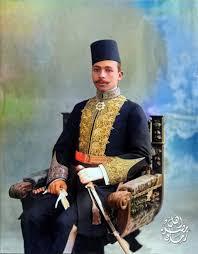Mustafa Kamel Pasha
Leader of the Egyptian Renaissance

- Name: Mustafa Kamel Pasha
Mustafa Kamel Pasha: Leader of the Egyptian Renaissance
Overview of Mustafa Kamel
Mustafa Kamel Pasha (1291 AH / 1874 - 1326 AH / 1908) was a prominent political leader and writer in Egypt. He founded the National Party and the newspaper "Al-Liwaa." He is regarded as one of the foremost opponents of colonialism and played a significant role in various fields of the Egyptian renaissance, such as education and advocating for the re-establishment of the Islamic University.
Early Life
Mustafa Kamel was born on 1 Rajab 1291 AH (August 14, 1874) in the village of Katama Al-Ghaba in Gharbia Governorate. His father, Ali Muhammad, was an officer in the Egyptian army, and Mustafa was born when his father was sixty years old. From a young age, he was known for his love of struggle and freedom. He received his primary education in three schools and attended the Khedive School, where he founded a national literary group and graduated with his secondary education at the age of sixteen.
Study in France
In 1893, Mustafa Kamel left Egypt to enroll in the French School of Law and then the University of Toulouse. During his studies, he wrote the play "The Opening of Andalusia," considered the first Egyptian play. Upon returning to Egypt, he emerged as an activist in journalism, gaining fame, especially after being targeted by the British press.
Political Activity
Mustafa Kamel rose as a national leader when he petitioned the French parliament in 1895, asking the French government to pressure Britain to leave Egypt. He accused the British occupation of running the Egyptian government through incompetent officials. In 1900, he established the newspaper "Al-Liwaa" as a platform for his views.
Contributions to the Renaissance
Kamel founded a boys' school and focused on the importance of education. He believed in the values of liberty and equality and asserted that Egypt has a national history spanning thousands of years. He was also influenced by the French philosopher Ernest Renan, who argued that the desire to live together defines a nation.
Stance on Islam and National Identity
Mustafa Kamel's position on Islam's role in Egyptian national identity fluctuated; at times, he viewed it as a cornerstone of national identity, while at other times he emphasized that love for the homeland is what makes one Egyptian. He supported Sultan Abdul Hamid II's Islamic nationalist vision as the best way to make the Ottoman Empire supportive of Egypt.
Death and Legacy
Mustafa Kamel passed away in 1908, leaving a significant legacy in the Egyptian national movement and is considered a symbol of the renaissance and freedom.

